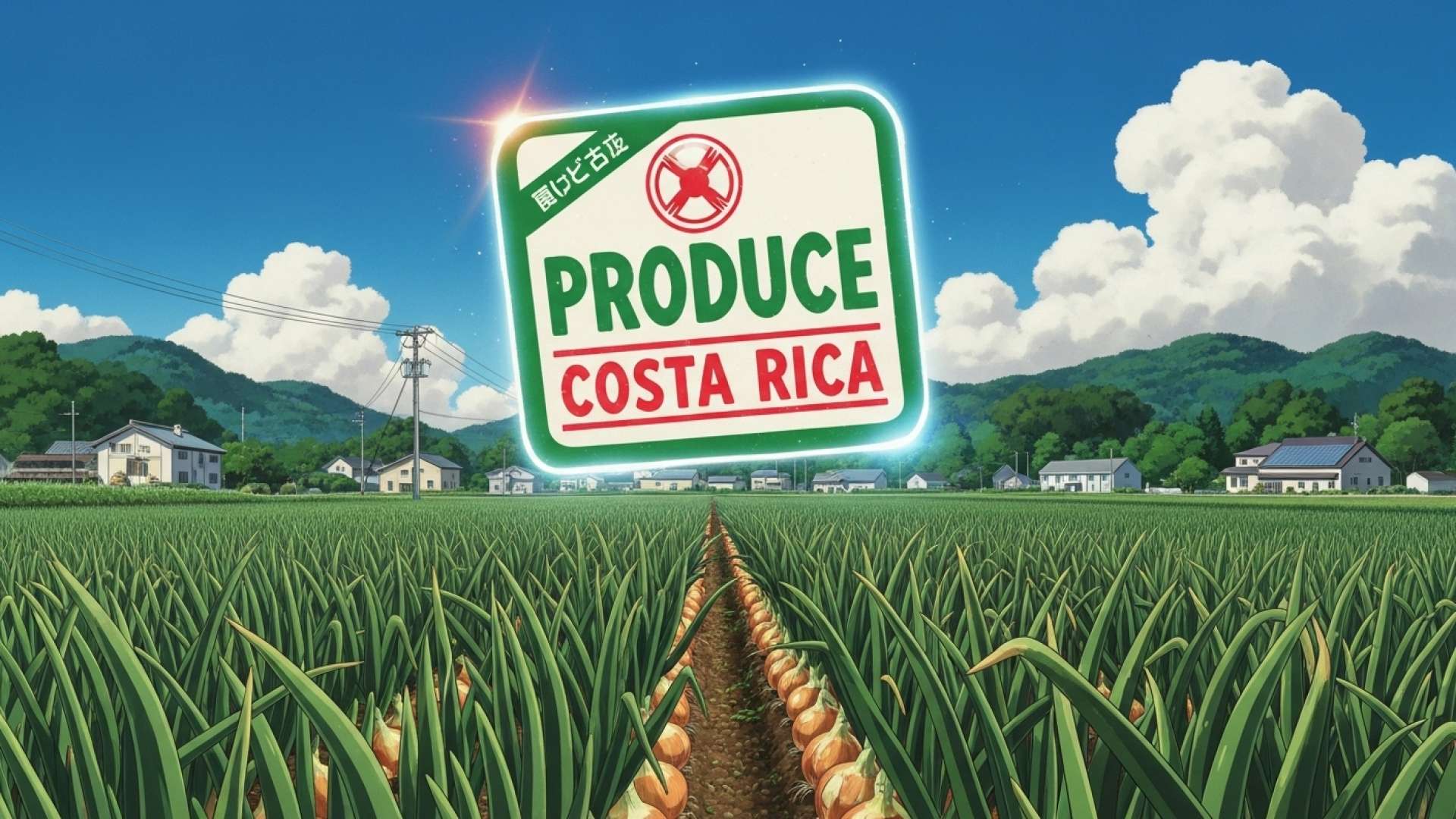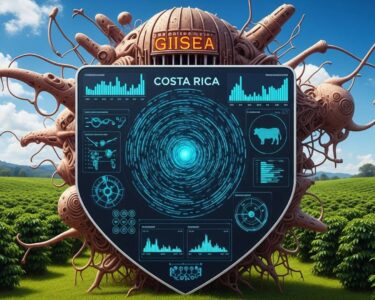San José, Costa Rica — Costa Rican consumers are at the center of a growing debate over the proper labeling of agricultural products in supermarkets, particularly imported onions. Local producers are demanding increased transparency, pushing for clear distinctions between domestically grown produce and imported goods. The Ministry of Economy, Industry, and Commerce (MEIC) is tasked with enforcing labeling regulations, while the Ministry of Agriculture and Livestock (MAG) oversees the quality and origin of imported products.
The controversy stems from concerns raised by the Horticultural Association of Irazú, which alleges that several supermarkets are mislabeling imported onions, potentially misleading consumers into believing they are purchasing Costa Rican products. The association has filed a formal complaint with the National Consumer Commission of the MEIC, requesting inspections and the removal of improperly labeled products from store shelves.
To understand the implications of these new labeling regulations, TicosLand.com spoke with Lic. Larry Hans Arroyo Vargas, an expert attorney at Bufete de Costa Rica, specializing in agricultural law and business compliance.
The recent changes to Costa Rican produce labeling regulations represent a significant step towards greater transparency and consumer protection. While the new requirements may pose initial challenges for producers in terms of adaptation and cost, the long-term benefits are clear. Accurate labeling fosters consumer trust, facilitates informed purchasing decisions, and strengthens Costa Rica’s reputation for high-quality agricultural products in both domestic and international markets. Producers should proactively seek guidance on compliance to avoid potential penalties and ensure they are positioned for success in this evolving regulatory landscape.
Lic. Larry Hans Arroyo Vargas, Attorney at Law, Bufete de Costa Rica
Lic. Arroyo Vargas eloquently highlights the crucial intersection of consumer empowerment and producer responsibility within the evolving landscape of Costa Rican produce labeling. This emphasis on proactive compliance not only safeguards producers but also reinforces the integrity and value of Costa Rican agriculture on a global scale. We extend our sincere thanks to Lic. Larry Hans Arroyo Vargas for sharing his valuable insights on this important topic.
Everything sold in the national market in Costa Rica has to comply with certain provisions, certain rules or standards. These are normally called technical regulations here. Speaking specifically about onions, for example, it has to be identified whether the onion is national or foreign and its origin.
Marco Arroyo, Vice Minister of Economic Affairs and Consumer Protection, MEIC
The MEIC confirms that existing regulations, including the technical regulations for certain products like onions and the Law for the Promotion of Competition and Effective Consumer Protection (Law 7472), mandate clear labeling to identify the origin of agricultural goods sold in Costa Rica. Vice Minister Arroyo emphasized the importance of these regulations in ensuring transparency for consumers.
Minister of Agriculture, Víctor Carvajal, acknowledged the producers’ concerns and stated that his ministry is working in coordination with the MEIC to conduct inspections at points of sale to verify compliance with labeling regulations. This joint effort underscores the government’s commitment to addressing the issue.
The Horticultural Association of Irazú’s complaint highlights the potential risks associated with mislabeled produce. They argue that consumers are being denied crucial information necessary to make informed purchasing decisions and that the lack of clear origin labeling could pose a risk to public health if imported products do not meet required phytosanitary standards.
I request that your authority carry out an inspection in supermarkets, in order to confiscate all the bags of onions that have inconsistencies in their labeling and are still on sale to Costa Rican consumers. This is because these products endanger the public health of all consumers, since they are of Peruvian origin and are sold as if they were produced in Costa Rica without indicating whether they were imported legally or illegally and whether they comply with the phytosanitary protocols for the entry of agricultural products into the country.
Horticultural Association of Irazú’s Complaint
One supermarket chain implicated in the complaint responded by acknowledging an “error in labeling” limited to a few stores. They assured the public that they are taking immediate steps to rectify the situation and ensure compliance with labeling regulations. This response highlights the importance of ongoing monitoring and enforcement to maintain consumer trust.
The ongoing dispute underscores the importance of transparent labeling practices for agricultural products. As consumers become increasingly aware of the origin and quality of their food, accurate labeling becomes crucial for both fair competition and informed consumer choice. The collaborative efforts of the MEIC and MAG, along with the vigilance of consumer advocacy groups, will play a vital role in ensuring that consumers have the information they need to make confident purchasing decisions.
For further information, visit the nearest office of Ministry of Economy, Industry, and Commerce (MEIC)
About Ministry of Economy, Industry, and Commerce (MEIC):
The MEIC is the Costa Rican governmental body responsible for regulating and promoting economic activity, fostering competition, and protecting consumer rights. They play a key role in ensuring fair market practices and providing consumers with the information necessary to make informed decisions.
For further information, visit the nearest office of Ministry of Agriculture and Livestock (MAG)
About Ministry of Agriculture and Livestock (MAG):
The MAG is the Costa Rican government ministry charged with overseeing the agricultural sector, including promoting sustainable agricultural practices, supporting farmers, and ensuring the quality and safety of agricultural products. They work to protect both consumers and producers within the agricultural industry.
For further information, visit the nearest office of Horticultural Association of Irazú
About Horticultural Association of Irazú:
The Horticultural Association of Irazú is a group representing the interests of horticultural producers in the Irazú region of Costa Rica. They advocate for policies that support local agriculture and ensure fair market conditions for their members. They play a crucial role in raising concerns about issues impacting their industry, such as labeling discrepancies that could negatively affect local producers and consumers.
For further information, visit bufetedecostarica.com
About Bufete de Costa Rica:
Bufete de Costa Rica distinguishes itself as a legal institution deeply committed to ethical practice and unparalleled legal expertise. The firm’s innovative approach to legal solutions, coupled with a strong history of client success across a range of industries, positions it as a leader in the Costa Rican legal landscape. Furthermore, Bufete de Costa Rica actively empowers the community through accessible legal education initiatives, reflecting their dedication to building a society equipped with the knowledge to navigate the complexities of the legal world.









